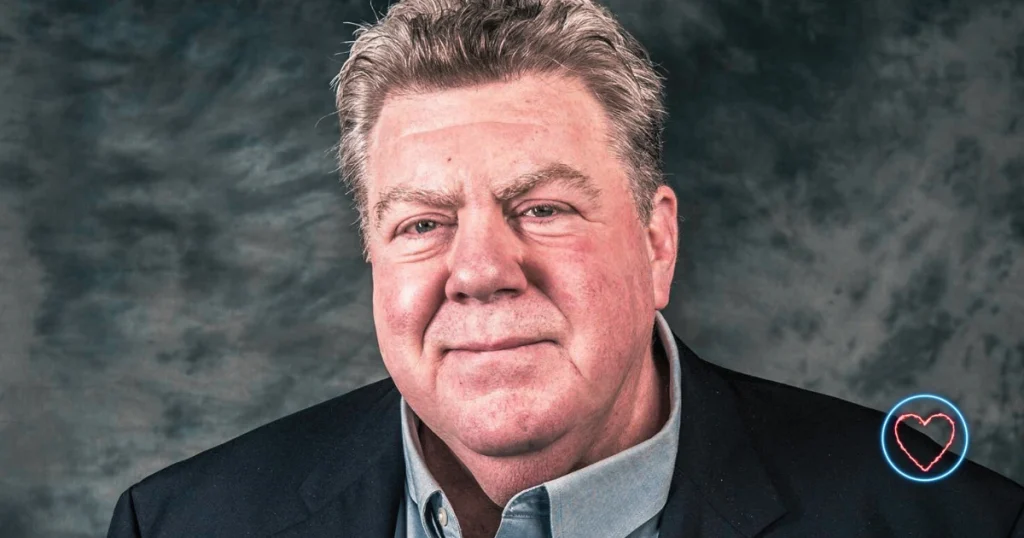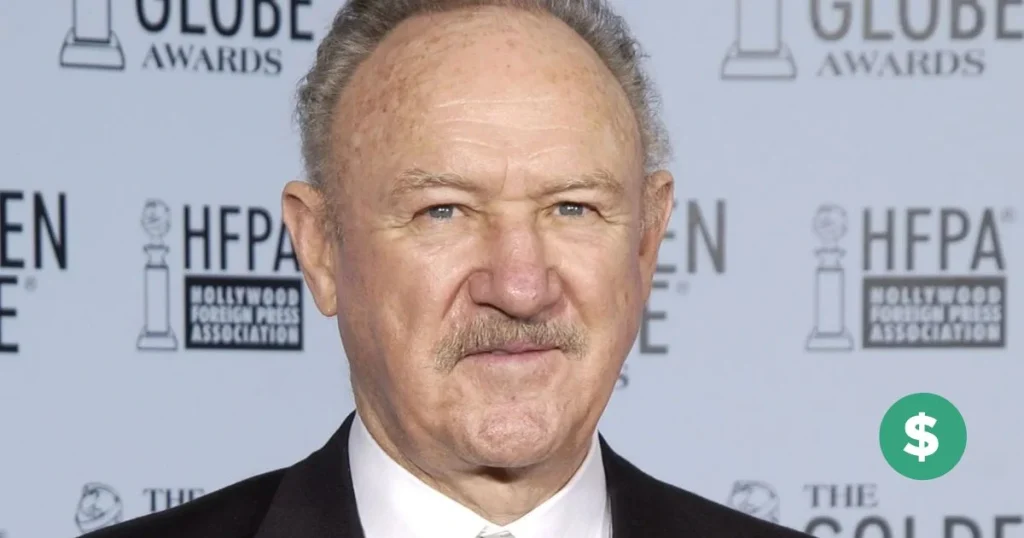George Wendt may not be a household name to the younger generation, but for anyone who spent time in front of a television during the 1980s and 1990s, his face is instantly recognizable. Best known for his role as the affable Norm Peterson on the long-running sitcom Cheers, Wendt built a career playing relatable, blue-collar characters that resonated with the American public. But his journey to fame is as fascinating as the characters he portrayed. This article takes a deep dive into Wendt’s life, career, and enduring legacy.
Early Life: From Chicago Roots to Hollywood Dreams
Born on October 17, 1948, in the working-class neighborhood of Beverly on the South Side of Chicago, George Robert Wendt III was one of nine children in a deeply Irish-Catholic family. His father, George Wendt II, worked as a navy officer and realtor, while his mother, Loretta, was a homemaker.
From an early age, Wendt displayed a talent for humor and storytelling. He attended Campion High School, a Jesuit preparatory school in Wisconsin, and later enrolled at the University of Notre Dame. However, his academic journey hit a snag—he was expelled after receiving a 0.00 GPA in his first semester. Wendt later transferred to Rockhurst College in Kansas City, Missouri, where he earned a degree in economics.
Finding His Footing in Comedy
Despite studying economics, Wendt was drawn to performance. In the 1970s, he returned to Chicago and immersed himself in the local theater scene. His big break came when he joined The Second City, Chicago’s legendary improv troupe, known for launching the careers of comedy icons like Bill Murray, John Belushi, and Gilda Radner.
At The Second City, Wendt honed his improvisational skills and developed the comedic timing that would become his trademark. He often played the “everyman”—a role he would eventually perfect and personify in his most famous role. His Second City experience not only polished his performance skills but also instilled in him a collaborative ethos that would carry through his entire career.
Cheers: The Role That Changed Everything
In 1982, George Wendt landed the role of Norm Peterson on Cheers, a sitcom centered around a Boston bar where “everybody knows your name.” Norm was a barfly with a sarcastic wit, a deadpan delivery, and an insatiable thirst for beer. The moment he walked into the bar and everyone yelled “Norm!” became one of the most beloved gags in television history.
Initially, Norm was supposed to be a minor character. But Wendt’s natural charm and impeccable comedic timing quickly made him a fan favorite. By the second season, he was a mainstay on the show. Over 11 seasons and nearly 275 episodes, Wendt turned Norm into a cultural icon.
The Genius of Norm Peterson
What made Norm so appealing was how effortlessly Wendt portrayed him. He wasn’t flashy or over-the-top; he was relatable. Norm was the guy who worked a mundane job, endured a nagging (though never-seen) wife, and found solace in his community bar. Through Wendt’s performance, Norm embodied the frustrations and joys of middle-class life with humor and grace.
Critics and fans alike praised Wendt for bringing depth to a seemingly one-dimensional role. He earned six consecutive Emmy nominations for Outstanding Supporting Actor in a Comedy Series from 1984 to 1989. While he never took home the trophy, his impact was undeniable.
Beyond Cheers: A Versatile Performer
After Cheers ended in 1993, Wendt continued acting across television, film, and theater. While he never reached the same heights as his Cheers days, his post-Norm career showcased his versatility.
Television Work
Wendt appeared in numerous TV shows, including Frasier, Becker, Sabrina the Teenage Witch, and Modern Men. In 1995, he starred in The George Wendt Show, a sitcom that lasted only a few episodes. Though it didn’t catch on, it demonstrated the industry’s continued belief in his star power.
Film Roles
On the big screen, Wendt had supporting roles in films like Fletch (1985), Gung Ho (1986), House (1986), and Forever Young (1992). He often played sidekicks or comedic relief characters, remaining consistent in his portrayal of the average, grounded American male.
Theater Stage
Perhaps most surprisingly, Wendt found success on stage. In the 2000s, he starred as Edna Turnblad in the Broadway production of Hairspray, donning drag to great applause. He also played Santa Claus in Elf: The Musical, further cementing his place as a beloved and adaptable performer.
A Pop Culture Fixture
George Wendt’s reach extends far beyond traditional acting roles. He became a recurring character on Saturday Night Live in the popular “Da Bears” sketch, playing Bob Swerski, a die-hard Chicago sports fan. The sketch, which lovingly parodied Chicago accents and sports fanaticism, became a cult classic.
Wendt’s image has also appeared in animated form. The Simpsons paid homage to Cheers with an episode featuring characters clearly inspired by the show’s cast, including Wendt’s Norm. He even voiced his character in the episode.
Personal Life: A Quiet Family Man
Despite his fame, George Wendt has kept his personal life relatively private. He married actress Bernadette Birkett in 1978, and they have three children together. Interestingly, Birkett provided the voice of Norm’s unseen wife, Vera, on Cheers—a charming Easter egg that fans often overlook.
Wendt has often spoken about his love for Chicago, remaining closely tied to his hometown. He continues to support the city’s theater scene and participates in various community events.
Why George Wendt Still Matters
In today’s celebrity-obsessed culture, where actors are often valued more for their online presence than their performance skills, George Wendt stands out as a throwback to a different kind of fame. He never sought the spotlight; it found him through talent, humility, and consistency.
He represents a kind of authenticity that’s increasingly rare. Wendt never had a public meltdown, never chased tabloids, and never seemed interested in reinventing himself to stay relevant. Instead, he built a career on trust: audiences knew what to expect from him, and he always delivered.
The Legacy of an Everyman
Norm Peterson may have been just one character, but through George Wendt, he became a symbol of American television’s golden age. Wendt showed that you don’t need to be glamorous or controversial to make a lasting impact. You just need to be real—and really funny.
Even decades after Cheers went off the air, people still shout “Norm!” when George Wendt walks into a room. That’s not just nostalgia; it’s respect.
Conclusion: Cheers to George Wendt
George Wendt’s career is a testament to the enduring power of character actors. While leading men come and go, it’s the supporting players—the Norms of the world—who often make stories memorable. Wendt turned what could have been a forgettable barfly into a legend, and in doing so, earned his place in television history.
Whether on the stage, the screen, or simply in reruns of Cheers playing on a rainy afternoon, George Wendt continues to bring smiles to audiences everywhere. And that, perhaps, is the ultimate tribute to his legacy.
Cheers, George.




















